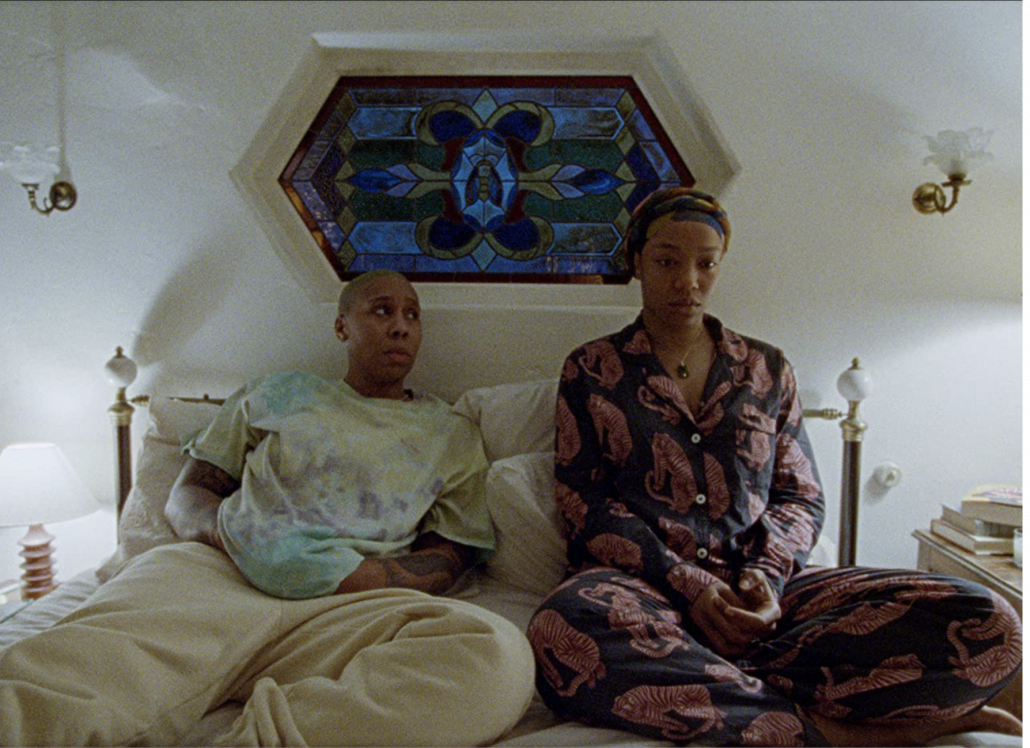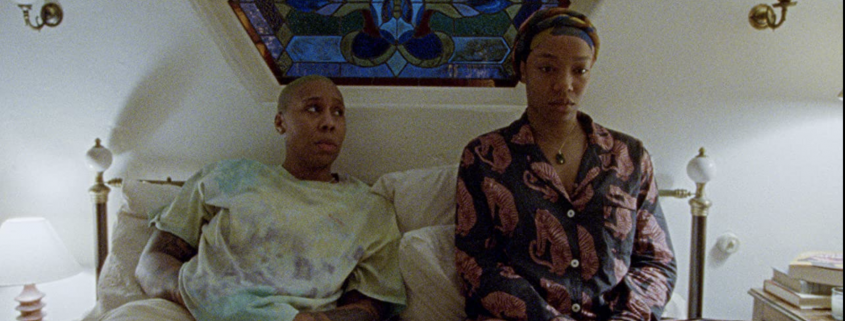‘Master of None’ subtly masters the art of intimate filmmaking

This review contains spoilers.
The first two seasons of “Master of None” were unlike most successful contemporary shows of its time. Episodes dedicated to the stories of older adults, filmed in black and white and spoken in Italian added to the eccentric and unconventional nature of the show.
However, in season three, director Aziz Ansari takes both the plot and the aesthetic in a whole different direction. While the first two seasons centered on Ansari’s character, Dev, as he navigated through romance and his career, the third season focuses on Dev’s friend Denise (Lena Waithe) and her wife Alicia (Naomi Ackie) as they deal with the messy, brutal realities of marriage.
It’s hard not to assume that one of the reasons for the switch in character focus is due to the sexual assault scandal involving Ansari back in 2018. However, he was never subject to the full cancellation some of his peers experienced, and Netflix has been more than happy to continue working with him.
The genius and beauty of this season lie in its subtlety. Due to unique cinematography choices, such as the smaller frame size and the grainy film quality, Season 3 feels more personal, as though it was filmed by an uncle obsessed with his new camcorder. In the first few episodes, the action rarely strays from Denise and Alicia’s stunning, antique house, with the narrative resting solely on the two characters as they talk, eat, dance and argue.
Dev, the star of the previous two seasons, makes only two brief appearances. We learn that Dev is having marriage issues and has moved back into his parent’s house, and the obvious hair thinning and general despondency will make viewers grateful for the shift in characters.
The decision to shift the focus onto Denise and Alicia’s relationship, whether out of necessity or not, proved to be wise and somewhat radical. Relationships between Black queer women are still relatively untouched when it comes to film and television, and yet, across these five episodes, their relationship is made to seem beautifully and exquisitely unextraordinary.
Another reason for this season’s success was giving more significance to the genius that is Lena Waithe. Waithe has had a rising profile ever since her historic Emmy win as the first African American to win the outstanding writing for a comedy series category. She has since starred in multiple TV shows, written the critically acclaimed film “Queen & Slim” in 2019, and has been an outspoken advocate for LGBTQ+ representation.
Part of the beauty and intimacy of this season is how intimate and yet unremarkable the story is.
This is real life in its truest form, accentuated by Ansari’s decision to take his sweet time by switching between shots. The awkward silences — the 10 seconds after someone leaves the room, the settling down after the music stops playing — is all there. There are two full minutes where we see Alicia just sitting miserably at the laundromat while an obnoxiously loud Latin song plays overhead. These are the moments that make this story seem more authentic than your run-of-the-mill romance. It’s not the grand gestures that are important but rather the small, forgotten details.
Although this series of episodes is titled “Moments in Love,” the two characters spend more moments out of love than in it. As Denise and Alicia deal with differences in career success, miscarriage and infidelity, the illusion of the dancing-while-folding-laundry couple quickly disintegrates. After their separation, the focus shifts to Alicia as she deals with the hardships of trying to get pregnant as a single lesbian woman, and Naomi Ackie carries the role with a quietly gut-wrenching performance deserving of a standing ovation.
While this season is drastically different from the previous two, its intimacy and genuineness are what help make it “Master of None’s” best season yet. Despite a shift in characters and a mostly single-key location, this season satisfies the needs of both hopeless romantics and love skeptics. The indie, rustic vibe also adds to the quiet beauty that elevates this mini-series. In the season’s dying moments, Alicia asks Denise, “What’s wrong with being like everyone else?” To which Denise responds, “Everything.” It is clear from the start that the reason this third season is so remarkably touching is due to its pointedly unremarkable nature.

